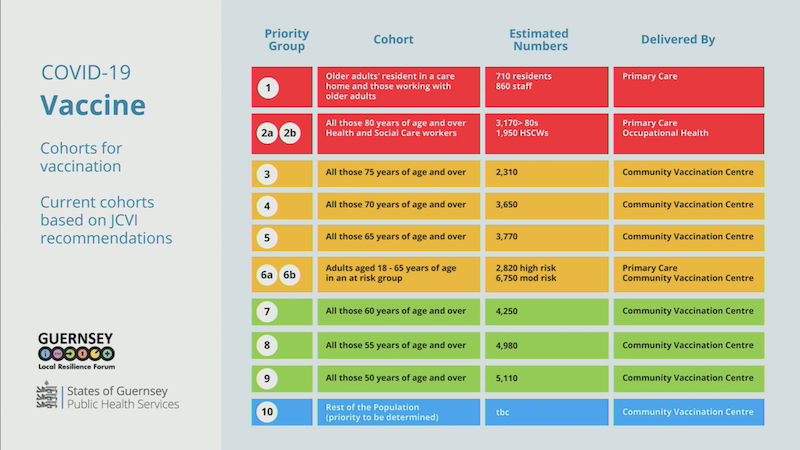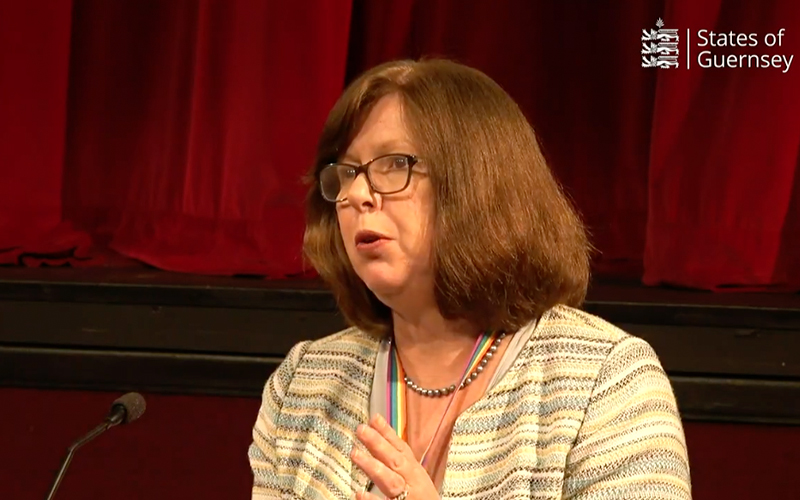

While more work needs to be done before anything can be given the 'green light', the vaccines currently being developed have been heralded as "the most significant breakthrough we've had since the start of the pandemic" by the Director of Public Health.
Dr Nicola Brink gave an update on the voluntary vaccination programme being developed by the States, including how the vaccine is likely to be administered, potential side effects and the manner in which people will be vaccinated.
"There are a number of things we're going to consider when we roll out a vaccination programme, and these are things that the [Public Health] team have been working on in an extreme amount of detail," she said.
"The first is looking at the vaccine efficacy. What we know is that the vaccine will protect vulnerable people against coronavirus, it protects people against getting significant diseases associated with the coronavirus infection.
"As more and more people are immunised, we will get more information as to whether the vaccine will also prevent the spread of the virus."

Pictured: The current priority groups for the COVID-19 vaccine, based on current JCVI recommendations. Guernsey will be expected to follow this guidance when a vaccine becomes available.
The States are continuing to develop an appropriate regulatory framework to allow for safe delivery of the vaccine, and are currently training a cohort of vaccinators so that a team is ready when the time comes. Basic development of the necessary protocols has been completed, but the vaccine we will receive has yet to be determined.
The vaccine we receive is likely to be one of two types that are the most common amongst the most-developed vaccines. One is mRNA, such as the Pfizer and BoiNTech vaccine that recently concluded its phase 3 trials. The other is an Adenovirus viral vector, which was used in the development of the Lassa Fever and Ebola vaccines, but was never marketed.
Both vaccines have noted the development of antibodies in trial subjects; while minor side-effects have been noted such as fever, headaches and muscle fatigue, there are currently no serious concerns associated with the vaccines in the late stages of development.
"The vaccine type will depend on what is allocated by the Joint Committee for Vaccination and Immunisation (JCVI)," Doctor Brink explained. "They will tell us what type of vaccine we will receive, and what groups we should immunise as priority groups."
Either vaccine will be administered in two separate doses; for an mRNA vaccine these will be 21 days apart, but for an Adenovirus vaccine they will be 28 days apart. This increases the logistical burden of administering the vaccine, but plans are reportedly in place with collaboration from primary care, specialist nurses, occupational health and a new community vaccination centre.

Pictured: Director of Public Health Dr Nicola Brink.
"What's critical to us is that we're running this programme in the absence of the community transmission of covid," she said. "The logistics of running a programme when you don't have community transmission are really so much easier than if you're running a programme in the face of a second wave."
While recent developments have been 'encouraging,' Deputy Chief Minister Heidi Soulsby reminded islanders that there was still a way to go before a vaccine becomes available.
"There is still a lot of work to do before any vaccines can be administered in the Bailiwick," she said. "An awful lot of people have to give it the green light.
"This is not down to one or two people. No one should be concerned that there won't be proper scrutiny, both from the scientists and the political representatives."
The CCA also confirmed during the meeting that the vaccination programme would be entirely voluntary, and that it would be free to all islanders.
Click HERE to read more about the changes being made to mandatory testing.
Comments
Comments on this story express the views of the commentator only, not Bailiwick Publishing. We are unable to guarantee the accuracy of any of those comments.